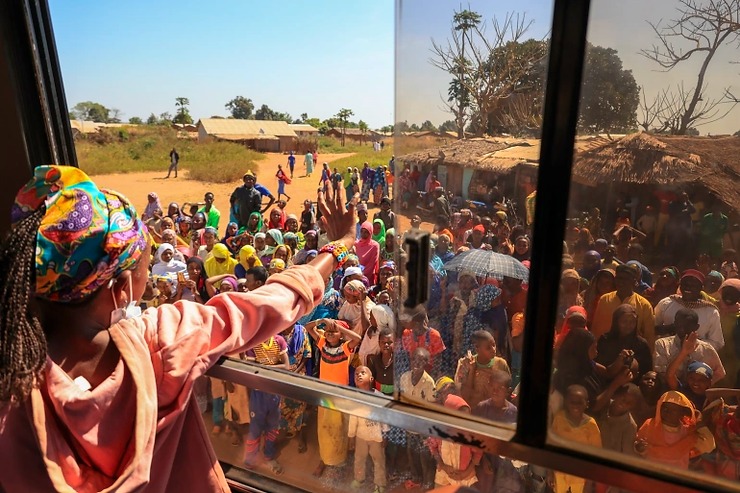Cameroon, home to half a million refugees, is one of a few African nations that has issued a number of IDs to help refugees access basic services.
As a refugee in Cameroon, Shelley Teckombi Yazembrou struggled for nearly seven years to open a bank account, or even move around freely, simply because she did not have a national identity card.
That changed in June, thanks to a pilot program by Cameroon’s government and the United Nations refugee agency (UNHCR), under which 6,000 refugees from the Central African Republic (CAR) were issued biometrics-based IDs to help them access basic services.
Now that they have the identity cards, Central Africans in the eastern Gado-Badzéré camp – where Yazembrou lives – and the Mandjou area are starting to access education, jobs, healthcare, and travel around without fear of arrest.
“Having the ID card has really helped me,” said Yazembrou, 34, who works as a community organizer, helping aid agencies and local authorities assist nearly 30,0000 Central African refugees at the camp.
“It isn’t as good as Cameroonian nationality, but I’m still grateful,” she told the Thomson Reuters Foundation.
Violence in CAR has forced more than 700,0000 people to leave the country since rebels removed then-President François Bozizé from power in 2013, according to UNHCR. About half of them found refuge in neighboring Cameroon, mostly in eastern and northern regions.
Without a legal ID, refugees across the continent often suffer discrimination and abuse, human rights groups say.
Cameroon – which hosts about half a million refugees in all – joins a handful of African nations, including Senegal, Mali and Rwanda, that have issued a limited number of refugee IDs, said Mbav Tshilombo, UNHCR deputy representative in Cameroon.
“The card is a form of empowerment, so they can have access to jobs and financial institutions,” he said, adding that Central Africans with the ID no longer need a Cameroonian intermediary to help them set up businesses.


